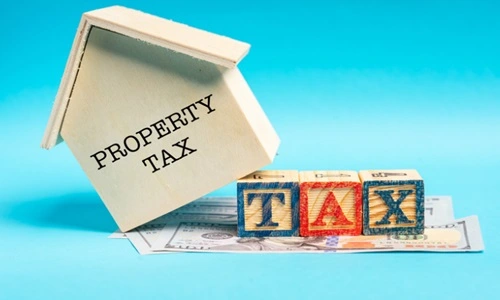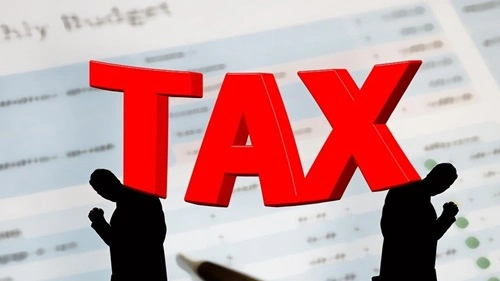Let’s say it is your dream to own land or property, and even build a house later down the line. And you do that too. You spend a big chunk of your savings on all this, and then you come to find out that there is this thing called property tax, and you must pay it every single year. Well, that doesn’t look good at first glance, right? But what exactly is a property tax? See, it is a tax collected by the state government or the local municipal corporation, which is then used to fund the public services in your area or state. And we know, at this point, you might be thinking, is this property tax thing good or bad for me, my financial health, and the community? Well, that’s precisely what we are onto today because here we will be going over all the possible property tax advantages and disadvantages. So yes, stay tuned for that if you really want to feel a lot clearer in your head about property taxes. Alright, here we go now.

Advantages of Property Tax
1. Money to Your Community
Property tax is a crucial source of revenue for local governments. This tax, therefore, ensures a definite flow of funds essential in, for example, building and maintaining public places like parks, roads, and schools, among others. Simply put, when you pay property taxes, you’re investing in your community’s growth and upkeep. The property tax gives a very reliable financial base, especially when compared with the values of the volatile sales taxes that can swing with the economy.
2. Increases Property Values
Property taxes also inspire you to improve your property because the tax rate is tied to the market value of your property. Replacing an old building or constructing a new addition may, of course, add value to your property. Indeed, this is very helpful to a property owner because it increases the value of their property, improving aesthetics and the function of the general neighborhood, among other things. This for sure impacts local economies and community life more positively.
3. Promotes Fairness
The property tax is an instrument of fairness in resource redistribution through government services, extracting more from the people who have a higher property valuation and using the revenue to help other people. This progressive tax ensures that those with more expensive properties contribute more to community welfare. This then helps in bridging the wealth gap and brings about more equity in society, whereby now everybody supports the community altogether.
4. Ensure Consistent Funding
Property taxes provide a stable and reliable source of revenue to the local government, unlike income and sales taxes, where their revenues come and go with the economy. This, therefore, enhances good budgeting and management of finances while providing continued support for the necessary public services even when the economy is not doing well. For property owners, this translates to steady public services that enhance the quality of life and sustain property values in the area.
5. Reduces the Speculation and Land Hoarding
Hefty property taxes on unused and underdeveloped land discourage speculation and the hoarding of valuable land, issues that can drive up property prices and limit availability. This is critical in cities where space is at a premium. The tax encourages landowners to develop their land or sell it to a person who will develop it, hence promoting the best use of the land for its capacity. It also assists in urban development and housing alternatives. It helps reduce property costs and further enhances more practical uses of the land, which is for sure one thing that benefits you and your community.
Disadvantages of Property Tax
1. Heavy Burden on Fixed-Income Homeowners
One significant disadvantage of the property tax is that it heavily falls on people with fixed incomes, such as retirees and homeowners. Their property value increases, and so does the tax, but their income doesn’t increase. This can lead to significant financial strain or might even force these homeowners to sell their homes. It’s a tough job, especially for those who have well-framed their later life in such houses.
2. Regressive Nature
Though it is meant to be progressive, property taxes often end up regressive. Homeowners with lower incomes might see their property taxes as too high relative to their earnings, particularly in places where property prices have shot through the roof, but incomes haven’t kept pace. This imbalance can deepen financial inequality and put enormous pressure on less wealthy homeowners, threatening their ability to keep their homes.
3. Not Investor-Friendly
You see, it is kind of true that high property taxes can make real estate a highly unattractive investment, and this extra cost may make real estate investments less preferable to other alternative investment options out there. This, however, may slow economic growth while at the same time yielding fewer employments with decreased property development activities, all of which may negatively impact your own and your community’s economic health. If we consider modern solutions, a real estate agent CRM can help navigate these challenges by optimizing property management and client relations.
4. Complicated Process of Valuation and Collection
Property valuation for tax purposes is a complicated affair, and thus, many disputes and acts of unfairness happen. If properties are wrongly valued, it can cause some homeowners to face unjust tax demands, paying too much or too little. This kind of complexity just shakes the belief of the people in the system and results in expensive, long legal battles.
5. Can Lower Property Values
In some areas, for example, where property taxes are very high, that reflects negatively on the resale value. Sometimes, high continued costs put off the possible buyers and like this decline the demand and, with it, the property prices. This can trap the homeowner in a situation of no recovery of his investment, which could shake the financial security and long-term planning.
Final Thoughts
That’s all there is for now. We truly hope that you came to know why it is super important for you to pay property taxes, and what possible benefits you can get from doing so. But just like anything else, there sure are some downsides to property taxes that need to be fixed or you need a workaround for those.

